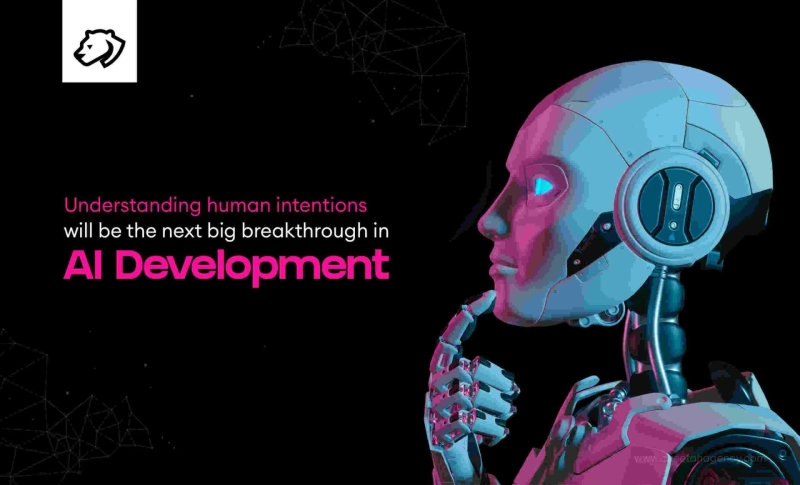Introduction
In recent years, artificial intelligence (AI) has made incredible progress, altering industries and transforming our daily lives. From self-driving cars to voice-activated assistants, AI development software services continue to advance rapidly. Nevertheless, the next significant leap lies in comprehending human intentions to bridge the gap between humans and machines truly. By unraveling the intricate network of human desires, motivations, and intentions, AI systems can become more intuitive, empathetic, and responsive, unlocking unparalleled possibilities across diverse domains. Hence, it is crucial to approach the appropriate agency to implement such AI systems for your business.
At Cheetah Agency, transform your business with our state-of-the-art AI software solutions, harnessing the potential of artificial intelligence to automate operations, enhance decision-making, and unlock fresh opportunities. Our specialized team of AI software developers is here to assist you in unleashing the power of AI and the limitless potential of automation.
Furthermore, this article explores the significance of understanding human intentions and the potential it holds for the future of AI development.
Significance of Artificial Intelligence
1.The Evolution of AI
AI has progressed from rule-based systems to machine learning algorithms and deep neural networks. These advancements have empowered AI software development companies to enable AI systems to identify patterns, handle extensive data, and execute intricate tasks with ever-growing precision. Nonetheless, a vital element that AI still lacks is the capacity to comprehend human intentions. While AI models can forecast behavior based on past data, grappling with the fundamental intentions that propel human actions remains a formidable challenge. As we transition towards a more human-centric approach to AI, the emphasis must shift from mere prediction to comprehending the underlying motivations behind human behavior.
2.The Importance of Human Intentions
Understanding human intentions is crucial for effective communication and collaboration between humans and AI systems. Human intentions encompass our actions' underlying goals, desires, and purposes. By deciphering these intentions, AI systems can anticipate our needs, personalize experiences, and offer tailored solutions. This understanding can revolutionize various domains, including healthcare, education, customer service, and social interactions.
In healthcare, AI systems that can discern patients' intentions can provide more precise diagnoses, offer personalized treatment plans, and even predict potential health risks. Likewise, AI-powered tutoring systems that comprehend students' intentions in education can adapt instructional strategies, identify areas of knowledge gaps, and provide targeted support. Moreover, understanding customer intentions enables AI to deliver more personalized recommendations, enhance user experiences, and improve overall customer satisfaction.
Challenges and Approaches
Decoding human intentions presents a multifaceted challenge due to human communication's inherent ambiguity, context dependence, and subjective nature. Intentions can be expressed through verbal and non-verbal cues, encompassing language, tone of voice, facial expressions, and body language. Building AI systems that can effectively capture and interpret these cues entails overcoming numerous hurdles.
Natural language processing (NLP) is a strategy worth considering, which centers on comprehending and interpreting human language. NLP techniques, including sentiment analysis, semantic parsing, and intention recognition, can assist in extracting intentions from textual data. Nevertheless, language alone does not offer a complete depiction of human intentions. Integrating additional modalities such as computer vision, audio processing, and physiological signals is essential to attain a more holistic understanding.
Another approach is machine learning, where AI systems learn from extensive labeled data to detect patterns and make predictions. By training AI models on datasets encompassing human intentions, these systems can acquire insights into the correlation between input signals and desired outcomes. Reinforcement learning, in particular, shows promise in understanding intentions through trial-and-error interactions. AI systems can learn from human feedback and adapt their behavior accordingly.
Ethical Considerations
Ethical considerations take center stage as AI systems gain enhanced capability in understanding human intentions. It becomes crucial to prioritize privacy, consent, and data collection and utilization fairness. Embedding transparency and accountability within AI systems becomes vital to uphold user trust and prevent unintended biases or manipulation. Furthermore, fostering diversity within the teams involved in AI development and incorporating diverse perspectives becomes necessary to address biases and avoid perpetuating societal inequities. Regular audits, explainability mechanisms, and continuous evaluation are essential to mitigate risks and ensure responsible deployment of AI.
Conclusion
Understanding human intentions marks the next frontier in the development of AI. AI systems can become more intuitive, empathetic, and responsive by unlocking the capability to comprehend the underlying motivations and desires that drive human actions. This breakthrough can potentially revolutionize numerous industries and reshape our interactions with technology. From healthcare to education, customer service to social interactions, AI systems that grasp human intentions can provide personalized experiences, tailor solutions, and enhance overall outcomes.
However, there are challenges to overcome, including the inherent ambiguity in human communication and the integration of multiple modalities. To address these issues, multidisciplinary collaboration is required, leveraging advances in natural language processing, machine learning, computer vision, and other domains. Maintaining a strong focus on ethical considerations is essential to ensure the responsible development and deployment of AI systems.
As researchers, developers, and society delve deeper into the complexities of human intentions, we draw closer to the realization of AI systems that genuinely comprehend and forge deeper connections with us. The potential impact of this breakthrough is vast, paving the way for a future where humans and machines collaborate seamlessly, driving transformative changes across industries, enriching our lives, and nurturing a more harmonious relationship between technology and humanity.
At Cheetah Agency, we bring years of experience, offering personalized AI software development services that can drive your business toward digital transformation, efficiency, and agility. Our services are designed to provide businesses with tailored AI software solutions that cater to their unique requirements. We work directly with our customers to produce bespoke AI software solutions that correspond with their business objectives, using a team of expert AI software developers. We aim to foster innovation and keep your business at the forefront of competition, delivering superior outcomes and unprecedented success. To learn more about our services, visit www.cheetahagency.com.



